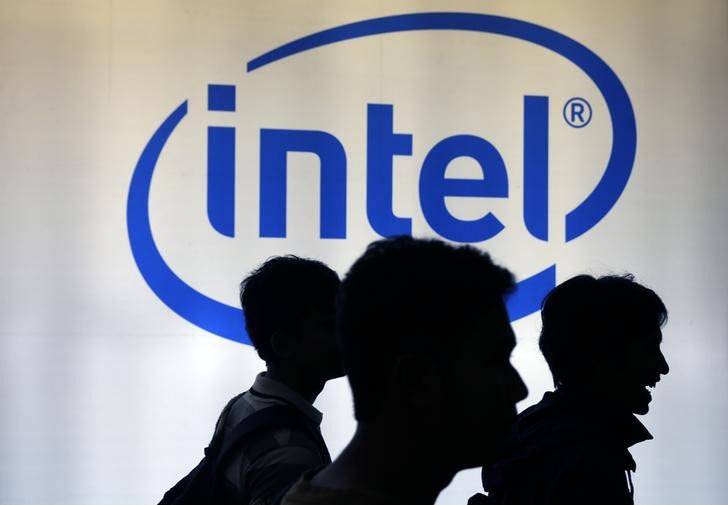By Lehar Maan and Liana B. Baker
(Reuters) - Intel Corp (O:INTC) agreed to buy Altera Corp (O:ALTR) for $16.7 billion as the world's biggest chipmaker seeks to make up for slowing demand from the PC industry by expanding its line-up of higher-margin chips used in data centres.
By combining with Altera, Intel will be able to bundle its processing chips with the smaller company's programmable chips, which are used, among other things, to speed up Web-searches.
Intel said on Monday it would offer $54 per share for San Jose, California-based Altera, a 10.5 percent premium to Altera's close on Friday.
Altera's shares were changing hands at $51.78, well below the offer price, in afternoon trading.
That suggested that some investors felt the deal could face regulatory hurdles, but analysts said there was virtually no overlap of products between the companies.
Intel's shares were down about 1.7 percent at $33.86.
The deal valued Altera at about 9 times forward revenue, according to Thomson Reuters data.
"It seems very high to me," Stifel, Nicolaus & Co analyst Kevin Cassidy told Reuters. "The last one I remember that was close was Broadcom buying NetLogic at 8 times forward revenues, and that didn't turn out very well for Broadcom."
The deal price is unchanged from Intel's unsolicited offer that sources had said Altera rejected in April.
The integration of Altera's chips with Intel's will create a new class of products giving customers a significant improvement in performance, lower costs and a lot more flexibility, Intel Chief Financial Officer Stacy Smith told Reuters. "That's the piece that's pretty exciting about it," he said.
Intel looked at other targets, but Altera was the best bet to create value for the shareholders, Smith said.
The transaction is the third big one in the highly fragmented chip industry this year. In the industry's biggest-ever deal, Avago Technologies Ltd (O:AVGO) agreed last week to buy Broadcom Corp (O:BRCM) for $37 billion.
Altera's programmable chips will allow Intel to increase the computational capability of its Xeon server chips, which could be under attack post the Avago-Broadcom merger, Summit Research analyst Srinivasan Sundararajan told Reuters.
NXP Semiconductors NV (O:NXPI) set off the latest round of deals in March when it agreed to buy Freescale Semiconductor Ltd (N:FSL) for $12 billion.
BEYOND PCS
The deal is Intel's biggest ever, outstripping its $7.7 billion acquisition of security software maker McAfee in 2011.
It also underscores Intel Chief Executive Brian Krzanich's determination to expand beyond chips for PCs, the company's mainstay. Intel slashed nearly $1 billion from its first-quarter revenue forecast in March, saying that small businesses were delaying upgrading their computers.
Personal computer shipments fell 5.2 percent in the first three months of this year, extending three years of decline, according to research firm Gartner.
Net revenue from Intel's PC group increased just 4 percent in 2014, generating about 62 percent of total revenue, whilst revenue in its data centre group increased 18 percent, providing just over a quarter of overall revenue.
The deal will also help Intel become more involved in the so-called Internet of Things - the concept of connecting ordinary household devices to the Internet.
The New York Post reported on Thursday that Intel and Altera had restarted talks.
Up to Friday's close, Altera's shares had risen 41.3 percent since the Wall Street Journal reported on March 27 that the two companies were in talks. Intel's shares rose 14.6 percent.
J.P. Morgan Securities LLC and Rothschild Inc are financial advisers to Intel. Gibson, Dunn & Crutcher LLP and Weil, Gotshal & Manges LLP are legal advisers.

Goldman Sachs & Co (NYSE:GS) is Altera's financial adviser, and Wilson Sonsini Goodrich & Rosati Professional Corp is legal adviser.